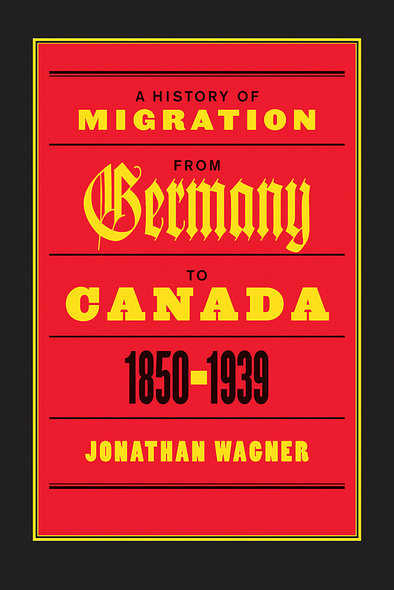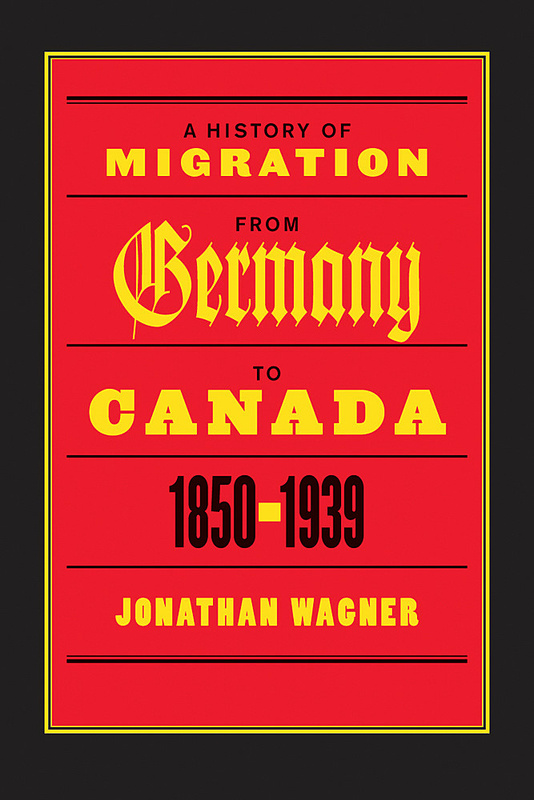
Human migration figures prominently in modern world history, and has played a pivotal role in shaping the Canadian national state. Yet while much has been written about Canada's multicultural heritage, little attention has been paid to German migrants although they compose Canada's third largest European ethnic minority.
A History of Migration from Germany to Canada, 1850-1939 addresses that gap in the record. Jonathan Wagner considers why Germans left their home country, why they chose to settle in Canada, who assisted their passage, and how they crossed the ocean to their new home, as well as how the Canadian government perceived and solicited them as immigrants. He examines the German context as closely as developments in Canada, offering a new, more complete approach to German-Canadian immigration.
This book will appeal to students of German Canadiana, as well as to those interested in Canadian ethnic history, and European and modern international migration.
Wagner’s book provides a valuable case study, tying together not only basic push and pull factors, but also the responses of governments to the challenges of migration during the rapid urbanization and industrialization of Germany and the massive task of settling the Canadian Prairies ... it is a valuable study of the political, social, and technological processes facilitating migration in an international context that will be useful for future research in the field of migration history.
A very important book – the first, in fact, looking at this subject. The narrative is clearly written and it would interest both those studying immigration and ethnic history, as well as the German-Canadian reading public.
Acknowledgments
Introduction
1 Migration in the 1850s and 1860s
2 Migration in the Age of Bismarck and Macdonald, 1870-90
3 Migration in the Generation before the Great War, 1890-1914
4 Interwar Migration, 1919-1939
Conclusion
Notes
Bibliography
Index





